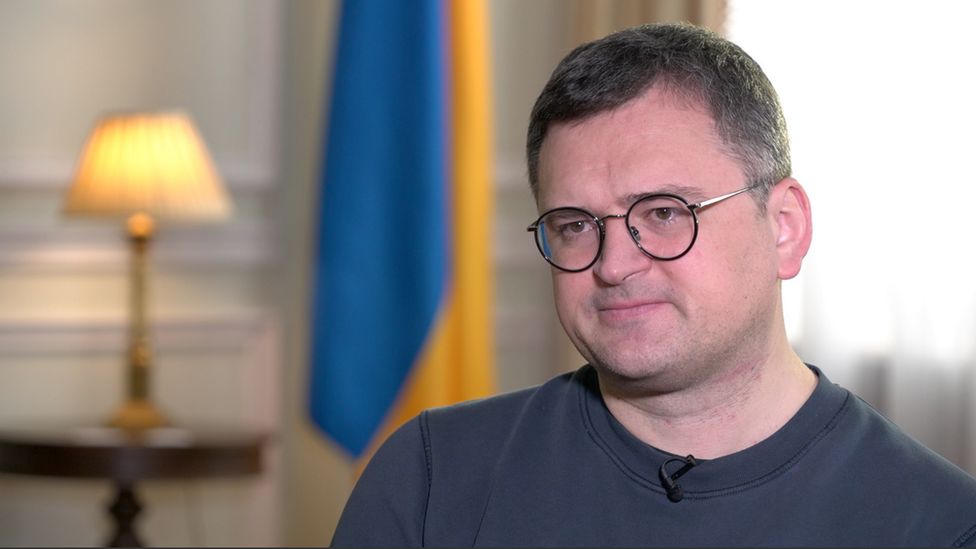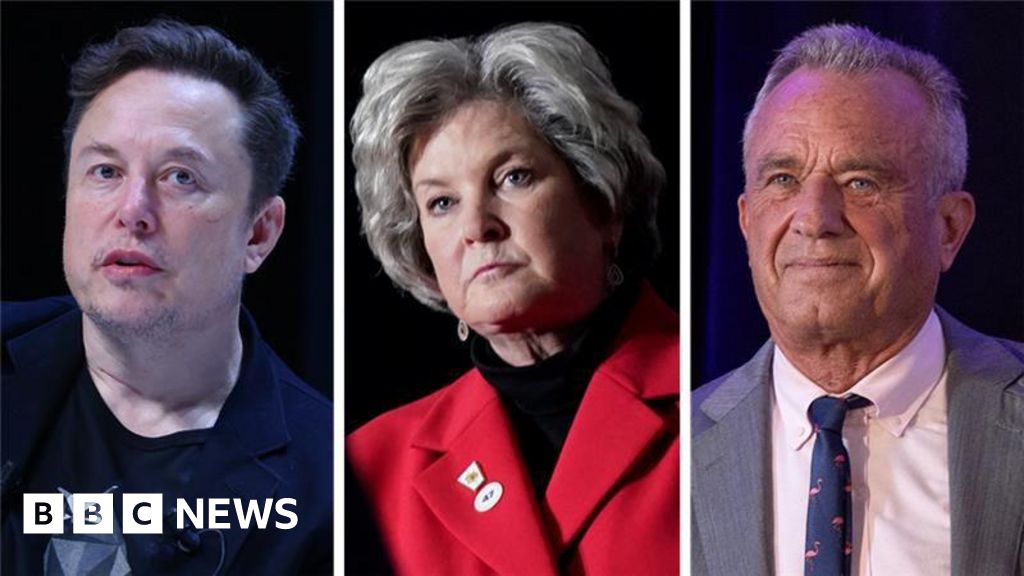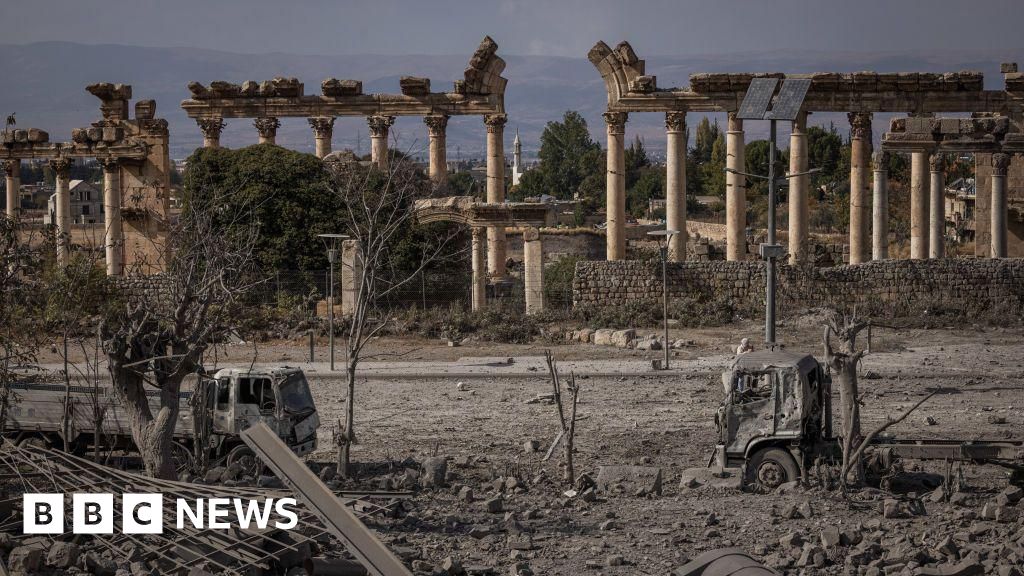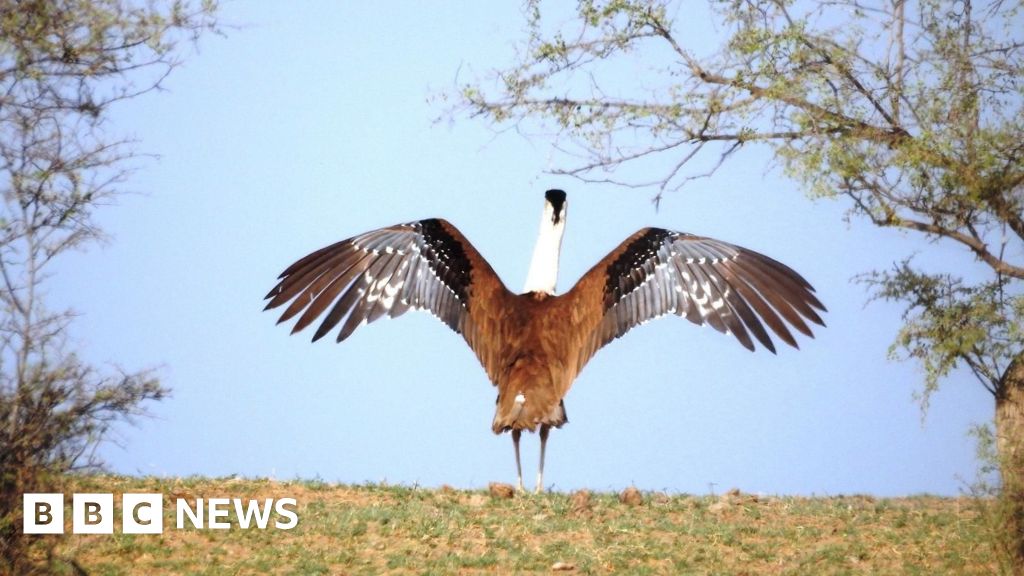ARTICLE AD BOX

Ukraine's foreign minister spoke of his disappointment that the Pope is yet to visit Ukraine
By James Landale
Diplomatic correspondent in Kyiv
Countries that "mistreated Ukraine" will be held to account after the war ends, Ukraine's Foreign Minister Dmytro Kuleba has warned.
In a BBC interview he said the choice every nation made following Russia's full-scale invasion will be "taken into account in building future relations".
He also warned delays of Western weapon deliveries would cost Ukrainian lives.
"If one delivery is postponed for one day, it means that someone is going to die on the frontline," he said.
In a wide-ranging interview, Mr Kuleba also discussed how he believes the war will end, the role of China in the war, and his disappointment that Pope Francis has yet to visit his country in war time.
Mr Kuleba spoke to the BBC in Ukraine's imposing, Soviet-era foreign ministry at the heart of Kyiv, now protected by sandbags and armed guards.
Image source, Getty Images
Image caption,Western nations have shown strong unity in backing Ukraine so far
Although Ukraine has received military and economic support from Western powers since Russia's invasion, many countries in Africa, Asia and South America have stayed on the sidelines.
Some are historically sympathetic to Russia, some are concerned about the economic costs of the war, and others believe the West is prolonging the fighting unnecessarily.
But Mr Kuleba made clear that countries which failed to support Ukraine now - those, he said, which had "misbehaved in the course of this war and mistreated Ukraine", would pay a price in the future.
Ukraine may well be dependent on Western aid and military support in the medium to long term and so its diplomatic disapproval may not worry some countries. But in peacetime Ukraine's huge grain exports give it substantial economic leverage, particularly in parts of the developing world.
"If anyone in the world thinks that the way this or that country behaved - or treated Ukraine at the darkest moment of its history - will not be taken into account in building future relations, these people just don't know how diplomacy works," he said.
"War is a time when you have to make a choice. And every choice has been recorded."
Image source, Getty Images
Image caption,Ukraine is using vast amounts of shells and ammunition to defend itself - and needs even more
Mr Kuleba said Western allies were not giving Ukraine military support fast enough because they had not been ready for a conflict on the same scale as World War One. And what he needed was artillery shells.
"We want partners to act faster," he said. "And if one delivery is postponed for one day, it means that someone is going to die on the front line.
"It means that someone who could have been still alive is going to die."
Nowhere has the demand for ammunition been greater than in the eastern city of Bakhmut where Ukrainian forces have been holding out for more than seven months against repeated Russian attempts to seize the city.
This, Mr Kuleba said, was "emotionally very challenging" because of the losses suffered.
But if Bakhmut fell, then other cities would be next: "So in order to save lives there… we have to fight in Bakhmut as long as we physically can."
Image source, Getty Images
Image caption,Russia has lost many troops battling for Bakhmut, but Ukraine has also suffered high casualties defending it
There was no sign, he said, of Russia being willing to negotiate an end to the fighting but he added: "Every war ends at the negotiating table... But my goal as a foreign minister is to make sure that Ukraine reaches the table after a defining success on the battlefield."
And that involves building the strongest possible coalition of support, an alliance that he feels does not include the Pope. Mr Kuleba said it was not for him but for God to judge the Holy Father but, he said: "We deeply regret that the Pope has not found an opportunity to visit Ukraine since the beginning of the war."
China, too, has thus far resisted Ukraine's lobbying for a meeting between China's President Xi Jinping and Ukraine's President Volodymyr Zelensky, even though China's leader is expected to visit Moscow shortly.
Mr Kuleba said his president was ready for a telephone conversation with Mr Xi and added: "I don't think China has reached the moment now… when it's ready to arm Russia."
Image source, Getty Images
Image caption,The West worries China may start sending weaponry to Russia
As for the United States, some analysts have speculated support for Ukraine might reduce after next year's presidential elections. But Mr Kuleba said: "I think we can survive any Republican voice", and insisted "the biggest luxury that Ukraine enjoys in the United States is the bipartisan support in both Democratic and Republican camps".
As his country's top diplomat, Dmytro Kuleba remains quietly confident Ukraine can maintain the backing of the allies that count: the ones which provide tangible support.
And, he says, Ukraine has one crucial factor on its side: "Historically, Ukraine was unfairly under-appreciated, and I regret it took a bloodshed and a devastating war for the world to realise how cool we are.
"And we will always be cool. But it just took you too much time to realise that."

 1 year ago
28
1 year ago
28








 English (US)
English (US)